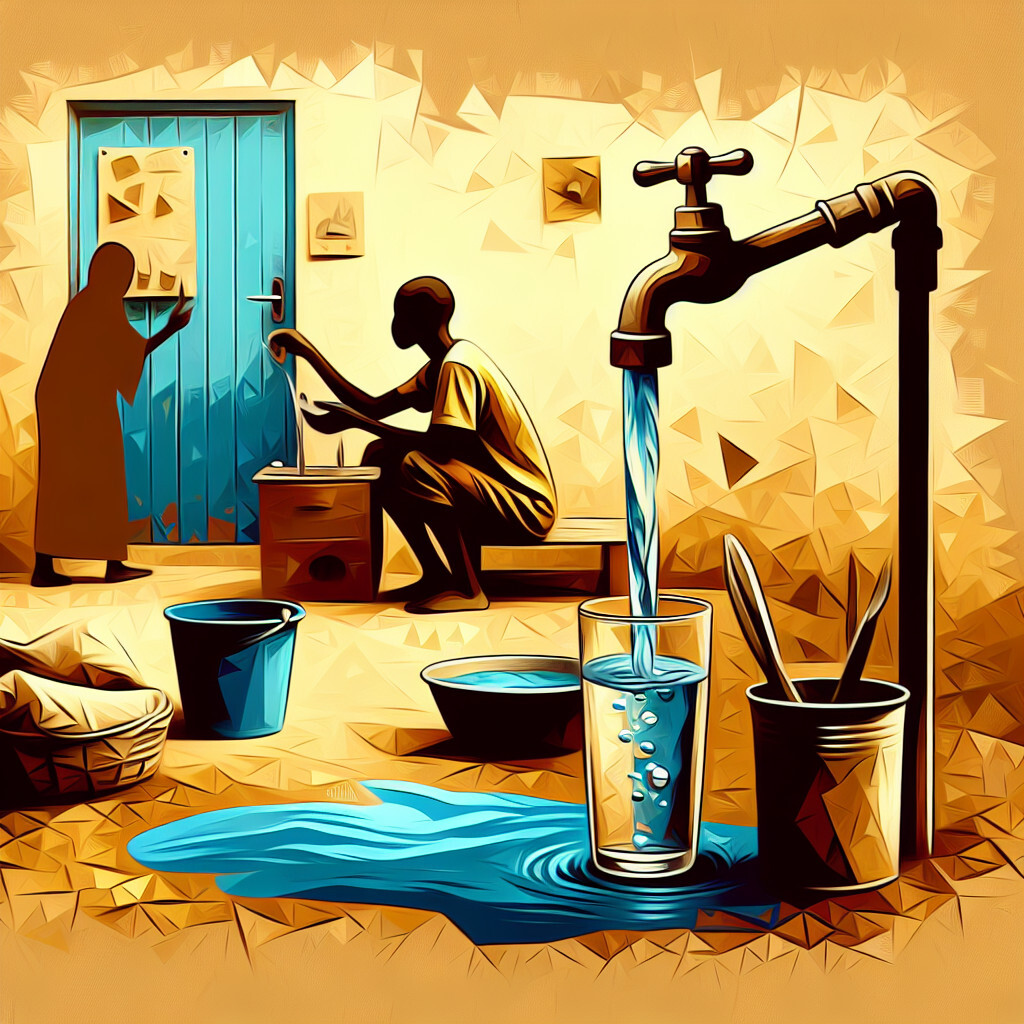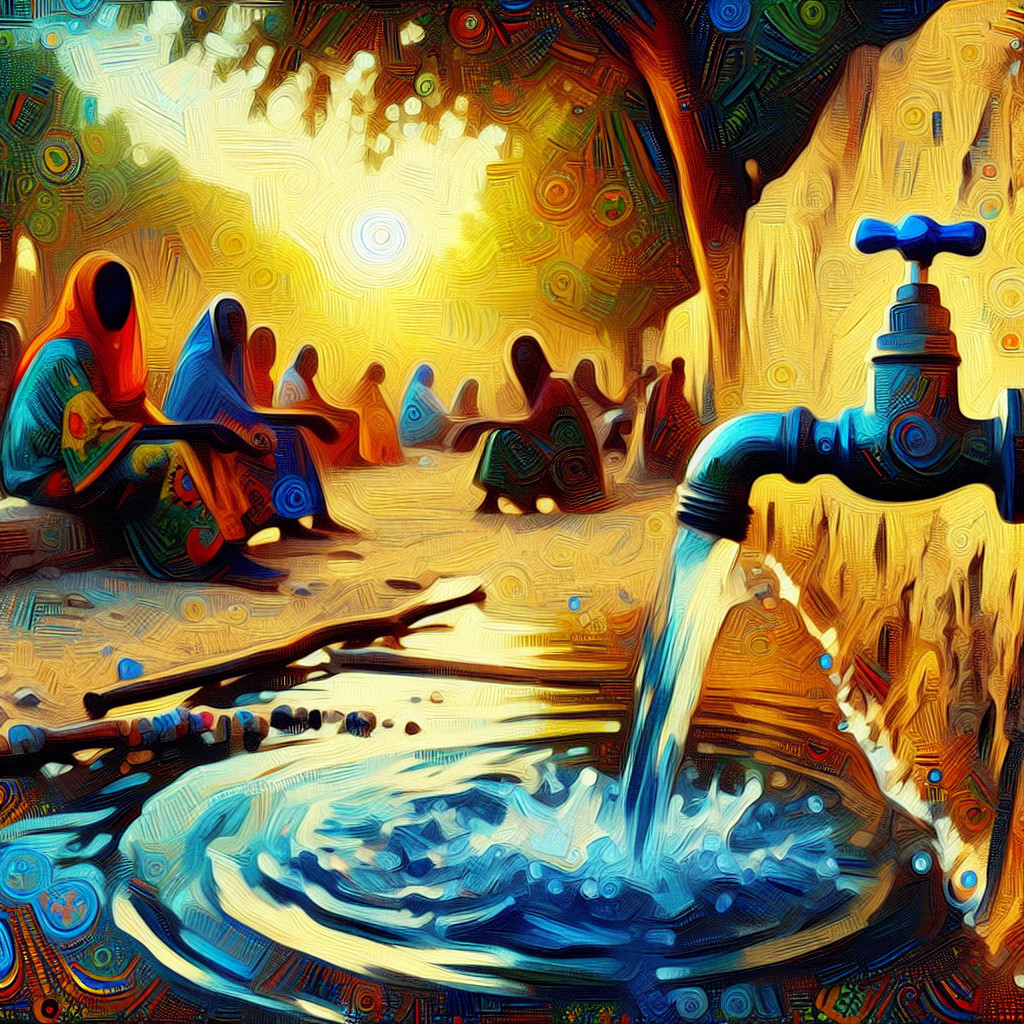-
Table of Contents
“Senegal’s Tap Water: A Quest for Purity Amidst Challenges.”
Introduction

In Senegal, the tap water quality varies significantly. In urban areas like Dakar, the water is generally treated and safe to drink, but it may still contain certain contaminants due to old pipes and infrastructure. In rural areas, access to clean tap water is often limited, leading to reliance on wells, rivers, or other sources that may not be safe for consumption without treatment. Despite efforts by the government and international organizations to improve water supply systems, water quality issues, including bacterial contamination and high salinity levels, remain a concern in many parts of the country.
Understanding the Quality of Tap Water in Senegal
Senegal, a West African nation, is known for its rich culture, vibrant music, and diverse wildlife. However, one aspect that often goes unnoticed is the quality of its tap water. The quality of tap water in Senegal is a topic of significant importance, as it directly impacts the health and well-being of its residents. This article aims to provide an in-depth understanding of the quality of tap water in Senegal.
The quality of tap water in Senegal varies greatly across the country. In urban areas, such as Dakar, the capital city, the tap water is generally safe to drink. The Senegalese National Water Company (SONES) oversees the water supply in urban areas, ensuring that it meets the World Health Organization’s (WHO) standards for drinking water. The water is treated with chlorine to kill bacteria and other pathogens, making it safe for consumption. However, it is advisable for tourists and those with sensitive stomachs to boil the water or use a water purifier as an extra precaution.
On the other hand, the situation is quite different in rural areas. Access to clean and safe drinking water is a significant challenge in these regions. The water sources in rural areas are often contaminated with harmful bacteria, parasites, and other pollutants due to inadequate sanitation facilities and poor waste management practices. As a result, the tap water in these areas is not safe to drink without proper treatment.
Furthermore, the quality of tap water in Senegal is also affected by seasonal variations. During the rainy season, the risk of waterborne diseases increases due to the contamination of water sources by runoff from agricultural fields and urban areas. Therefore, it is crucial to treat the water before consumption, especially during this period.
The Senegalese government, in collaboration with international organizations, has been making concerted efforts to improve the quality of tap water across the country. Several projects have been initiated to expand the water supply network, improve sanitation facilities, and promote hygiene practices. These initiatives have resulted in significant improvements in the quality of tap water in many parts of the country.
However, despite these efforts, challenges remain. The rapid urbanization and population growth in Senegal have put immense pressure on the existing water infrastructure. Moreover, climate change poses a significant threat to the country’s water resources, potentially exacerbating the water quality issues.
In conclusion, the quality of tap water in Senegal is a complex issue that varies across the country and throughout the year. While the tap water in urban areas is generally safe to drink, the water in rural areas often requires treatment due to contamination. The Senegalese government is actively working to improve the situation, but challenges related to urbanization, population growth, and climate change persist. Therefore, it is advisable for residents and visitors to treat the tap water before consumption, especially in rural areas and during the rainy season, to ensure their health and safety.
The Impact of Infrastructure on Senegal’s Tap Water Supply
In the West African nation of Senegal, the quality and accessibility of tap water are largely influenced by the country’s infrastructure. The state of the infrastructure, in turn, is shaped by a variety of factors, including economic resources, government policies, and geographical conditions. This interplay between infrastructure and tap water supply in Senegal is a complex issue that warrants a closer look.
Senegal’s water supply infrastructure is primarily managed by the national water company, Sénégalaise Des Eaux (SDE). Over the years, SDE has made significant strides in improving water accessibility, particularly in urban areas. However, despite these efforts, the quality and availability of tap water in Senegal remain inconsistent, largely due to infrastructural challenges.
One of the main infrastructural issues affecting Senegal’s tap water supply is the lack of a comprehensive and efficient distribution network. Many parts of the country, especially rural areas, are not connected to the main water grid. This means that a significant portion of the population relies on alternative sources of water, such as wells and boreholes, which may not always provide clean and safe water.
Another infrastructural challenge is the aging and deteriorating state of the existing water supply systems. Many of the pipes and treatment facilities are old and in need of repair or replacement. This not only leads to frequent water supply disruptions but also increases the risk of water contamination. For instance, leaky pipes can allow pollutants to seep into the water, compromising its quality.
The geographical conditions in Senegal also pose infrastructural challenges. The country is characterized by a diverse terrain, with coastal regions, plains, and hilly areas. This makes it difficult to establish a uniform water distribution network. Moreover, the country’s semi-arid climate exacerbates water scarcity issues, particularly during the dry season.
Despite these challenges, the Senegalese government, in collaboration with international partners, has been making concerted efforts to improve the country’s water infrastructure. For instance, the World Bank has funded several projects aimed at expanding the water distribution network and upgrading existing facilities. These initiatives have resulted in some improvements in the quality and accessibility of tap water, particularly in urban areas.
However, much more needs to be done to ensure that all Senegalese have access to clean and safe tap water. This includes investing in new technologies to enhance water treatment and distribution, as well as adopting sustainable water management practices to mitigate the effects of climate change. Additionally, there is a need for more inclusive policies that take into account the specific needs and challenges of rural and marginalized communities.
In conclusion, the state of Senegal’s tap water supply is intricately linked to the country’s infrastructure. While significant progress has been made in recent years, infrastructural challenges continue to hinder the provision of clean and safe tap water for all Senegalese. Addressing these challenges will require concerted efforts from the government, international partners, and local communities, as well as a commitment to sustainable and inclusive development.
Health Implications of Drinking Tap Water in Senegal
In the West African nation of Senegal, the quality of tap water and its potential health implications have been a subject of concern for both residents and visitors. The country has made significant strides in improving access to clean water, but the quality of this water, particularly from the tap, remains a contentious issue.
Senegal’s tap water is supplied by the national water company, Sénégalaise Des Eaux (SDE), which sources water from both surface and underground sources. The water undergoes treatment to remove impurities and harmful substances before it is supplied to households. However, despite these efforts, the quality of tap water in Senegal is not always guaranteed.
One of the primary concerns is the presence of harmful bacteria and parasites. In some regions, especially rural areas, the water supply can be contaminated with pathogens such as E. coli, Salmonella, and Giardia, which can cause serious gastrointestinal illnesses. This is often due to inadequate sanitation facilities and poor waste management, which can lead to the contamination of water sources.
Another issue is the high mineral content in the water. While minerals are essential for human health, excessive amounts can be harmful. In Senegal, the tap water is often hard, meaning it has high levels of calcium and magnesium. Consuming hard water over a long period can lead to health problems such as kidney stones and cardiovascular diseases.
Furthermore, in some parts of the country, the tap water contains high levels of fluoride. While fluoride is beneficial for dental health, excessive intake can lead to dental fluorosis, a condition that causes discoloration and damage to the teeth. It can also lead to skeletal fluorosis, a debilitating condition that affects the bones and joints.
The quality of tap water in Senegal can also be affected by pollution. Industrial activities, agricultural runoff, and improper disposal of waste can contaminate water sources with harmful substances such as heavy metals, pesticides, and chemicals. These contaminants can have serious health implications, including neurological damage, cancer, and reproductive issues.
Despite these challenges, it’s important to note that the government of Senegal, in collaboration with international organizations, has been working tirelessly to improve the quality of tap water. Measures such as upgrading water treatment facilities, improving sanitation infrastructure, and enforcing stricter regulations on industrial activities are being implemented to ensure the safety of the water supply.
However, until these improvements are fully realized, it is advisable for residents and visitors in Senegal to take precautions when consuming tap water. Boiling water before use or using water purification tablets can help eliminate harmful bacteria and parasites. For those concerned about mineral content or chemical contaminants, using a water filter can be beneficial.
In conclusion, while Senegal has made significant progress in improving access to water, the quality of tap water remains a concern due to potential bacterial contamination, high mineral content, and pollution. As efforts to improve the water supply continue, it is crucial for individuals to take necessary precautions to protect their health.
Solutions to Improve the Tap Water Situation in Senegal
In Senegal, a country located on the western coast of Africa, the quality of tap water has been a subject of concern for many years. Despite the country’s significant progress in expanding access to clean water, the quality of tap water remains a pressing issue. This article will explore the current state of tap water in Senegal and discuss potential solutions to improve the situation.
Senegal’s tap water situation is characterized by a dichotomy between urban and rural areas. In urban areas, the tap water is generally safe to drink, thanks to the efforts of the national water company, Sénégalaise Des Eaux (SDE). The SDE has implemented rigorous water treatment processes to ensure the water’s safety. However, in rural areas, the situation is quite different. Many communities lack access to clean tap water, and even when it is available, its quality is often questionable due to inadequate treatment and contamination from agricultural runoff and other pollutants.
The government of Senegal has recognized the need to improve the tap water situation and has taken steps to address it. One of the key strategies has been the implementation of the Millennium Drinking Water and Sanitation Program (PEPAM), which aims to provide universal access to safe drinking water and sanitation by 2025. This program has already made significant strides in improving water access, but the quality of the water remains a challenge.
To address the issue of water quality, several solutions can be considered. Firstly, there is a need to invest in advanced water treatment technologies. While the current treatment methods are effective in urban areas, they may not be sufficient to deal with the types of contaminants found in rural water sources. Advanced treatment technologies, such as reverse osmosis and ultraviolet disinfection, can effectively remove these contaminants and ensure the safety of the water.
Secondly, there is a need to strengthen the regulatory framework for water quality. Currently, the enforcement of water quality standards in Senegal is weak, particularly in rural areas. Strengthening the regulatory framework would ensure that all water providers, both public and private, adhere to the highest standards of water quality.
Thirdly, community involvement is crucial in improving the tap water situation. Communities need to be educated about the importance of clean water and the risks associated with consuming contaminated water. They also need to be involved in the management of local water resources to ensure their sustainable use.
Lastly, international cooperation can play a significant role in improving Senegal’s tap water situation. Partnerships with international organizations and donor countries can provide the necessary funding and technical expertise to implement advanced water treatment technologies and strengthen the regulatory framework.
In conclusion, while the tap water situation in Senegal is challenging, particularly in rural areas, there are viable solutions to improve it. By investing in advanced water treatment technologies, strengthening the regulatory framework, involving communities in water management, and fostering international cooperation, Senegal can ensure that all its citizens have access to safe, clean tap water.
Q&A
1. Question: Is the tap water in Senegal safe to drink?
Answer: No, it is generally not recommended to drink tap water in Senegal due to potential contamination.
2. Question: What are the common contaminants in Senegal’s tap water?
Answer: The common contaminants in Senegal’s tap water can include bacteria, viruses, and parasites, as well as chemical pollutants.
3. Question: How do locals in Senegal get their drinking water?
Answer: Locals in Senegal often rely on bottled water, boiled water, or water treated with disinfectants for drinking.
4. Question: Are there efforts to improve the tap water quality in Senegal?
Answer: Yes, there are ongoing efforts by the government and international organizations to improve water quality and access in Senegal.
Conclusion
The tap water in Senegal is generally not safe to drink due to potential contamination with harmful bacteria and viruses. It is recommended to drink bottled or treated water.






